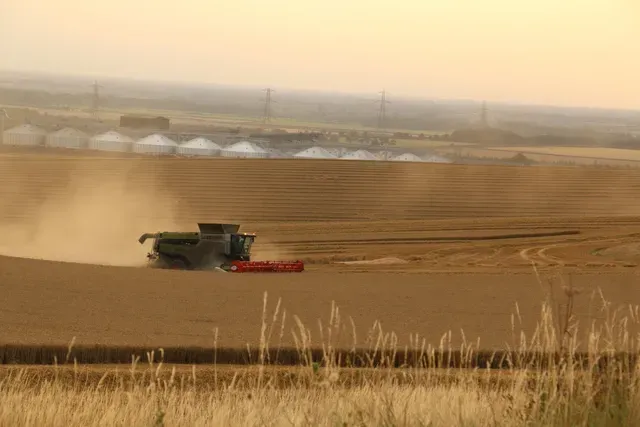R H Bott
Why did you join Camgrain?
My Farther joined Camgrain on the 10th of January 1983 when he bought 200 tonnes of storage rights. I think he was particularly attracted to the co-operative aspect of the business and was keen to support a new venture. I ran the grain store over harvest that year and I can still remember the absolute joy of sending 200T of wet wheat to Camgrain and gaining some extra space in our grain store.
How have you seen Camgrain changed over the years?
Camgrain has grown massively over the years and the way that we use the storage has changed as well. In the early days we sent wet wheat, allowing us to start harvesting earlier after a rain and taking pressure off our own dryer. As we increased our storage, we started sending crops that are difficult to store, particularly oil seed rape and crops that have potential for a premium like milling wheat or malting barley, reducing rejections, and securing any premiums. We now send virtually all our crops to Camgrain, so harvest for the grain store slave has changed from sitting in the grain store for 18 hours a day for six weeks to short periods of hectic lorry loading and pauses while we wait for the crops to be fit to combine.
What are the challenges Camgrain have helped members overcome?
Having storage at Camgrain makes us much more efficient and productive because it gives me control of my time. We do not have to load lorries at random times throughout the year, all the loading is done at harvest, and I do not have to spend time managing crops in store. It releases me from having to be highly focused on the markets and it saves time over harvest. More timely harvest preserves quality and premiums and lets us get our cover crops and rape drilled exactly on time and, as we try and improve the diversity of our cropping, we can grow a greater range of crops without having to worry about how to store it all.
How do you think Camgrain can help farmers in the future?
Post subsidy, land ownership and the actual farming of the land will become more decoupled and land use will become more varied and not necessarily involve crop production, which means that Camgrain will need to offer more flexible storage arrangements as the area that members farm become more variable. Camgrain’s members are some of the best farmers in the country and whenever I am at a Camgrain event I am always exposed to new ideas and concepts. There is always so much to be learnt finding out how other farmers run their businesses. Camgrain’s initiatives in sustainable farming will help all the members find a way to reduce farming's environmental impact. The team at Camgrain are really well connected and know which farmers are leading the transition to more sustainable farming and I am sure there are opportunities to learn from other members. Finally, keep being the best cooperative grain store so that the members can focus on running lean, efficient and sustainable businesses, we couldn't do it without you.







